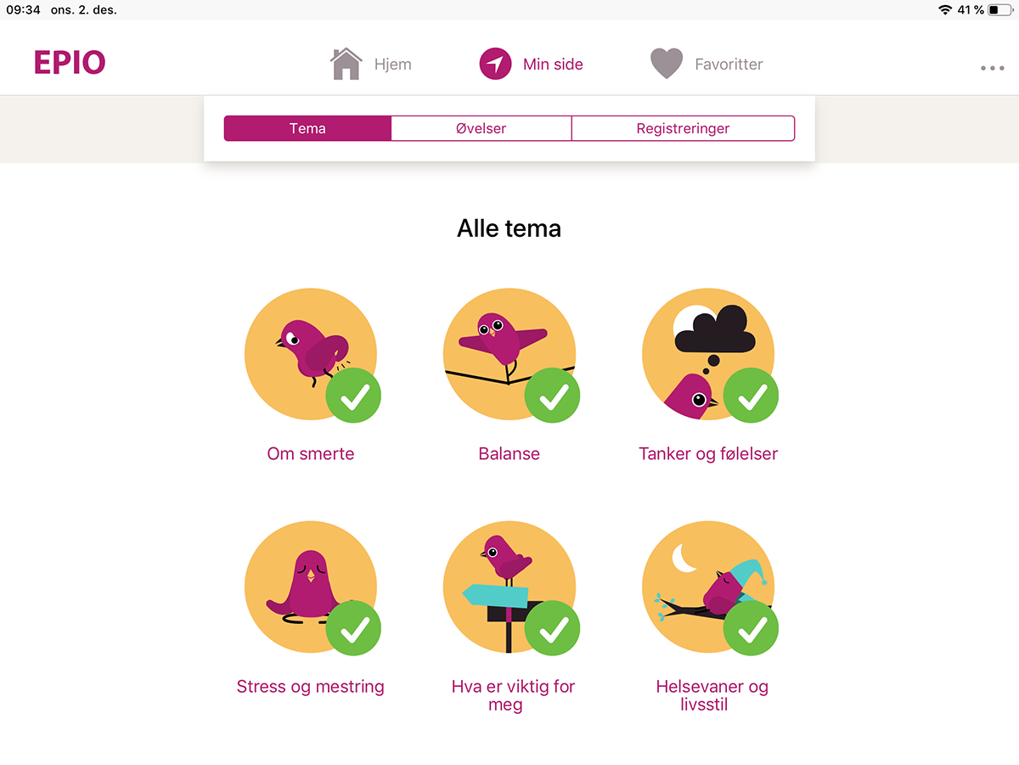
Photo: Oslo University Hospital.
dHealth is a newly established company that will commercialise health apps developed at the Department of Digital Health Research at Oslo University Hospital. The aim of the apps is to help people with different health issues such as cancer, chronic pain or weight problems with life skills. ‘The apps have an enormous global potential, and we’ve already had a lot of interest in them,’ says Kristin Sandreid, business developer at Inven2.
‘Patients with acute or chronic disorders are receiving treatment or are in contact with the health service about 10% of the time. The remaining 90% of the time, the patient has to cope with the disorder on their own. Therefore, they need coping mechanisms. How do we help patients to live their best possible lives with their disorder? This question forms the basis of everything we do,’ says Lise Solberg Nes.
Solberg Nes is head of the Department of Digital Health Research at Oslo University Hospital. They work with partners on various projects to develop digital solutions or interventions such as a tool that helps patients to better manage their disorder.
The department, headed by Solberg Nes, has been in existence since 2002, but under different names. Its central focus has always been on the patients and how to help them manage their individual disorders.
One of the digital tools they have developed is the StressProffen app: See a video about the app here (in Norwegian only).
‘StressProffen was developed as a stress management tool for cancer patients. We’ve interviewed a number of people with cancer and asked them what they found stressful when faced with a serious illness like cancer. Then, our psychologists worked closely with the designers and technical developers as well as cancer patients and healthcare professionals on developing the content of the app,’ says Solberg Nes.
And the app works. Randomised, clinical trials have proven this; you can read more about this later in this article.
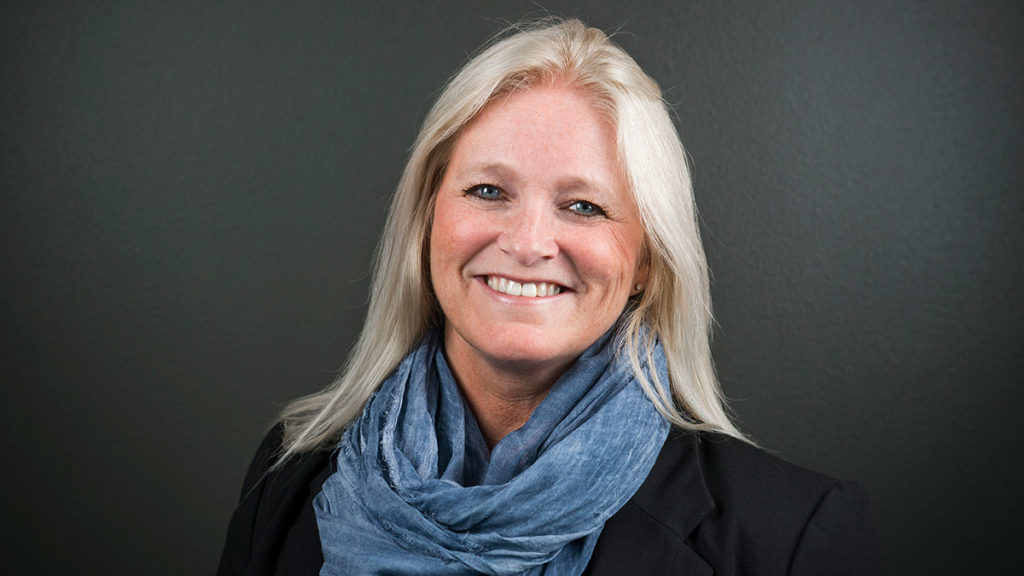
Lise Solberg Nes. Photo: Oslo University Hospital.
Pain, cancer, obesity and communication with sick children
The company, dHealth, was founded recently to commercialise StressProffen and three other health apps that were licensed from the Department of Digital Health Research, with the assistance of Inven2.
See a video about the four apps:
- EPIO is a digital tool for people suffering from chronic pain. Its aim is to help such patients cope with pain on a daily basis. The program provides psychoeducational information. It explains how pain can cause a negative mindset and how to break out of this. EPIO also has relaxation exercises and helps to create a balance between rest and activity.
- eCHANGE is a digital tool to help people who were previously overweight to keep their weight down over time, so-called weight stabilisation, after managing to lose weight. The biggest challenge for people who are overweight is not necessarily losing weight but maintaining the weight loss afterwards. As many as 75% of people struggle with this. eCHANGE is designed so that the users can focus on creating new, useful habits, and aims to motivate and support the users in their everyday lives.
- SiSom is a digital tool that has been developed for sick children. A game is played in which the child goes on virtual trips to five different islands and at the same time answers questions related to preparing for visits to the doctor/hospital. The child’s answers give the hospital staff useful information about how the child is really doing, both physically and emotionally.
- StressProffen is a digital tool designed to help cancer patients cope with the challenges of their situation. StressProffen explains what happens physiologically in the body when it experiences a stressful situation, and contains approved, psychoeducational information and exercises to improve the person’s understanding of and methods of coping with stressors related to their cancer.
Enormous potential and the time is right
Business Developer Kristin Sandreid and Technology Strategy Manager Eirik Løvbakken at Inven2 have worked with the Department of Digital Health Research.
‘After the first meeting in the autumn of 2019, so this has gone fast. We could both see the potential. The apps that have been developed have really improved. They’re based on research, they’re tested and validated and they work really well. Considering that as many as one in three people develop cancer and about one in four people live with chronic pain, there’s definitively a need and a market for them. After the meeting, we agreed that we had to take it further,’ says Sandreid.
Sandreid knew from experience that it is difficult to find a profitable payment model for health apps, particularly apps that are targeted at patients, where hospitals are normally the purchaser.
Solberg Nes knows this too. It is not the first time she and the department have tried to launch their digital solutions.
‘We were in contact with Medinnova, the predecessor to Inven2, as far back as 2009, to discuss commercialisation of the app, SiSom. It was developed to improve communication between sick children and healthcare professionals. Even with a number of commercial partners, we were unsuccessful in trying to get this product onto the market. There’s still a lot of international interest in SiSom, so I’m hoping that we’ll succeed. I think we were ahead of our time, and that, now, the time is right,’ says Solberg Nes.
Sandreid agrees with Solberg Nes that the department was ahead of its time.
‘Few people had smart phones and tablets ten years ago, and they generally weren’t used in hospitals. Now the time is right. We know that the hospitals that are familiar with SiSom are very happy to start using the app,’ says Sandreid.
However, they will have to wait a while before the app becomes commercially available through dHealth.
‘SiSom need a software upgrade, which is quite expensive. The plan is to commercialise the other three apps first and then have the financial muscle to implement the upgrade,’ says Sandreid.
Seeking investors
Sandreid has spent a lot of time discussing payment models and business development of the apps with national and international parties.
‘There are different target groups for the apps; therefore, we’ve got to have different customers and payment models. We’re currently working out the details,’ says Sandreid.
One such discussion led to the setting up of dHealth as a company, with Thomas de Mora as CEO. He has over 30 years’ experience in business development, the last 15 of which were in IT.
‘When I heard about the apps from Inven2, I immediately thought that this was something with great potential, and I wanted to be involved. We’re just getting started, and, as with most start-ups, our focus is on having everything in place at the same time: Business plans, payment models, putting together a good team and implementing a marketing plan. Then, there’s the issue of securing capital in order to expedite internationalisation of the company,’ says de Mora.
He highlights the global trend for individuals to be more involved in their own healthcare. Together with healthcare professionals, the patients should be more active in making the best healthcare decisions for themselves. This is also referred to as ‘empowerment’ meaning self-efficacy, life skills or helping people to help themselves.
‘Our health apps are an important tool in providing assistance with life skills,’ says de Mora.
Inven2 has provided assistance with the Department of Digital Health Research’s licensing process and has also given dHealth a convertible loan. This loan can be converted into shares at a later date when other investors come on board.
Sandreid and de Mora are eagerly awaiting feedback from the Research Council of Norway’s Forny programme to find out if they will receive support for continued business development.
‘With or without Forny, the plan is to get investors on board early in 2021. Then we’ll have enough in place to be able to make a presentation,’ says Sandreid.
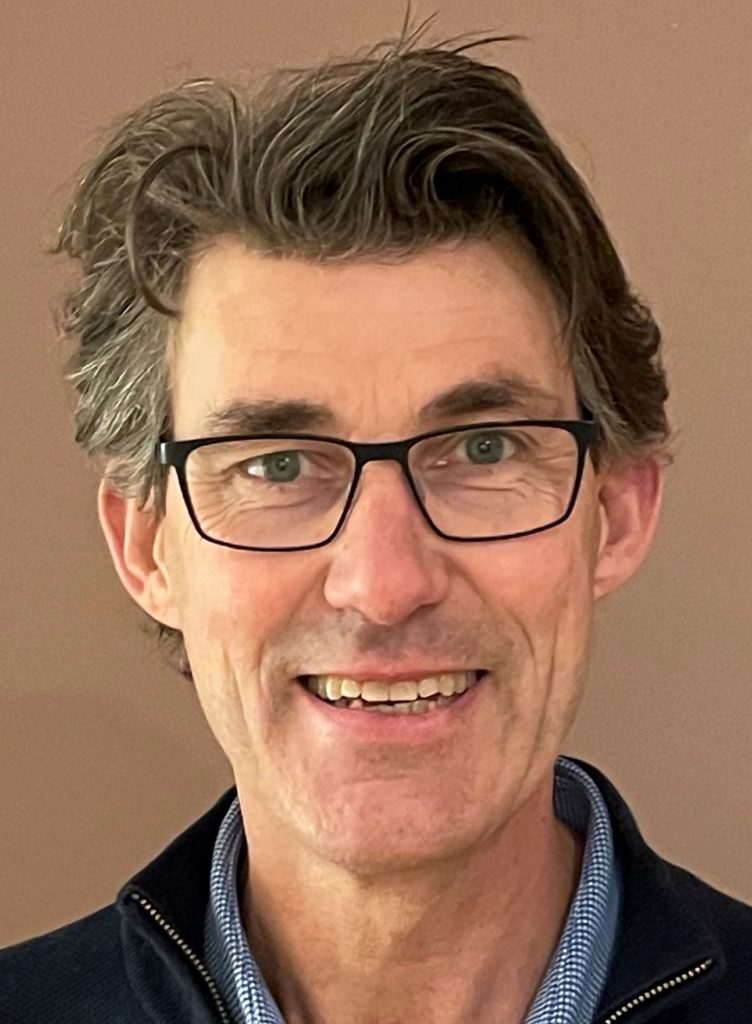
Thomas de Mora. Photo: dHealth.
Scientifically based and patient involvement
The digital solutions that the Department of Digital Health Research has developed are unique in many ways.
‘There are a myriad of health apps on the market, but we’re different in that we’re research-based. We look at what the research finds to be effective and then combine this with feedback and close dialogue with the end users, patients and ideally healthcare professionals throughout the entire development process,’ says Solberg Nes.
She points out that the challenge for patients is not necessarily findings apps or digital tools for their situation.
‘Even if we know that a program or app works, it doesn’t help unless the end users actually use the solution. Therefore, we invest a lot of time in involving the end users so that we know what’s required for them to actually use the program or app,’ says Solberg Nes.
‘When the app has been developed, it will be clinically tested in pilot studies and randomised controlled trials. For StressProffen, this meant that half of the cancer patients in one trial were given access to the app, and the other half were not. The patients’ quality of life, mental health and experience of stress were evaluated before and after the trial.
Randomised controlled trials mean that we can measure the effect of the apps and adjust them to make them even better. We now have 12 months of usage data for StressProffen. The data show that patients who use the app are less stressed, less depressed and have a better quality of life. It’s very rewarding for us to see that StressProffen works. We definitely want users to get the best possible support from this,’ says Solberg Nes.
A global initiative
de Mora thinks that the fact that the health apps are developed by researchers and healthcare professionals together with the users and then clinically tested is what makes them unique and appealing.
‘The US is the biggest global market. There should be a big demand there for Epio and eChange, which are tools that assist with pain relief and weight stabilisation respectively. A major challenge for American society is that many people are overweight, and there has been an opioid crisis because many people became dependent on opiates for pain relief. They need new tools that work and are not harmful,’ says de Mora.
Sandreid says that Canada and Europe are potential markets too.
‘I think these apps may work even better when integrated with social media, where we can appeal to cooperation, affiliation and group thinking. Here, the app users can interact, help each other and give advice and support. Then, this will become a useful way for the company to develop market knowledge,’ says de Mora.
He thinks that the coronavirus pandemic has highlighted how important the remote follow-up of patients and users is and that it may have changed the mindsets of healthcare professionals as well as users.
Would you like more information about the company?
Then please contact Thomas de Mora by email.

Epio. Photo: Oslo University Hospital.
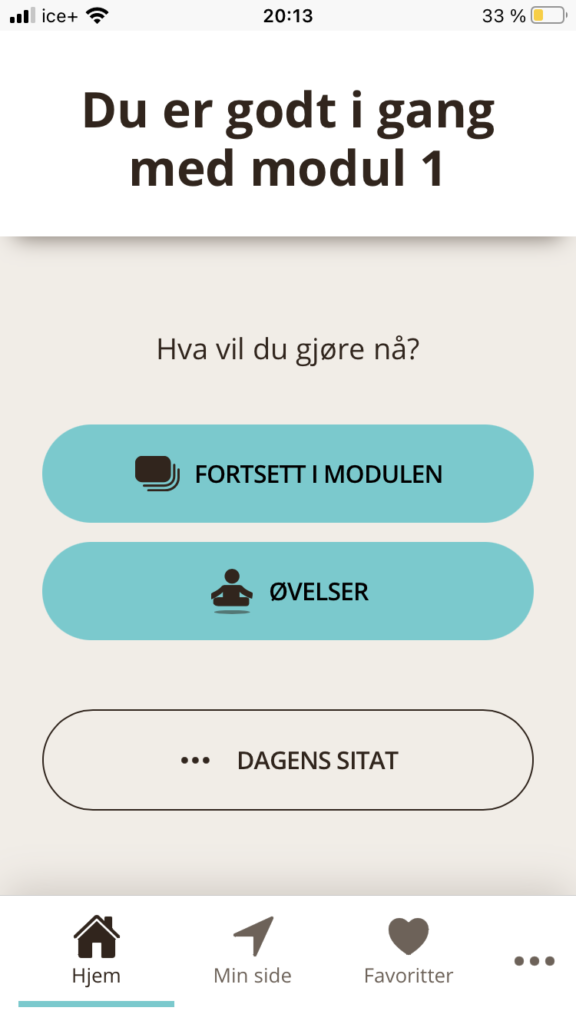
StressProffen. Photo: Oslo University Hospital.
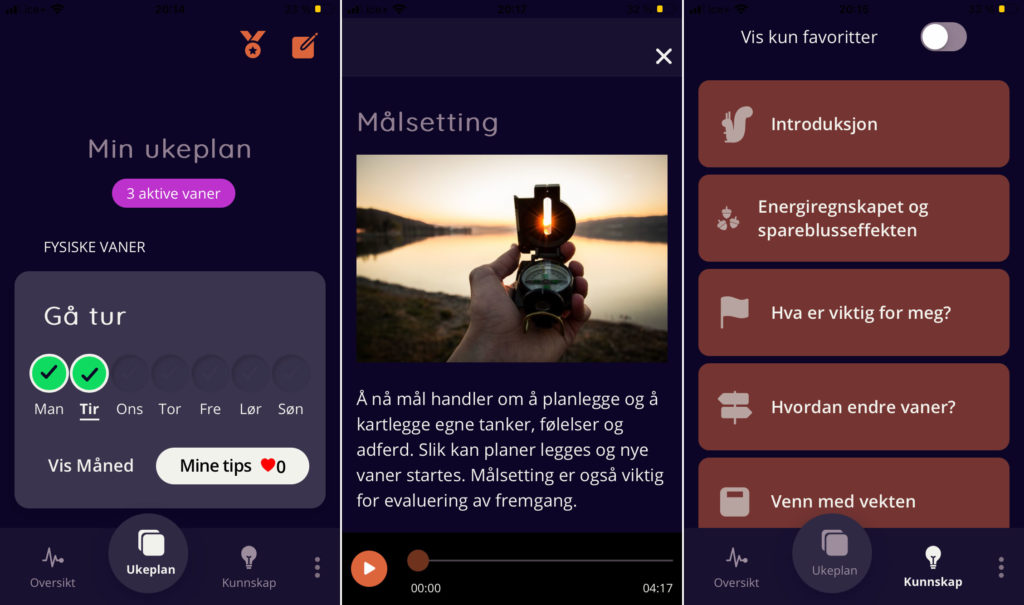
eChange. Photo: Oslo University Hospital.
Facts:
dHealth
- A newly established company that will further develop and commercialise digital health apps that have been developed at the Department of Digital Health Research at Oslo University Hospital.
- Thomas de Mora is CEO.
- Four apps have been licensed that are being further developed to make them ready for sale over the next two years.
- Currently working on establishing the company and further developing the apps to make them ready for sale in different countries and to different buyers.
- Would like to get in touch with potential partners and investors.
See the dHealth homepage for more information.

The Department of Digital Health Research
- The Department is organised under the Division of Medicine at Oslo University Hospital, and based at Aker Hospital.
- Works on developing, testing and implementing digital solutions that can increase patients’ knowledge with regard to their own health and coping mechanisms. The solutions will also help to improve individual follow-up, communication and interaction between the patient and healthcare professionals.
- An interdisciplinary research department with expertise within nursing, psychology, physiotherapy, public health and health promotion, marketing, film and graphic design, digital design, technical architecture and system development.
- Lise Solberg Nes is head of the department. She is a researcher, clinical psychologist and adjunct professor at the Mayo Clinic in the US.
- The department has, or is in the process of developing, almost 20 digital tools. See a list of these on the homepage under Projects.
- StressProffen has attracted attention in the Norwegian cancer research environment. Versions of StressProffen are now being offered to Norwegian women with breast cancer in a major trial under the auspices of the Cancer Registry of Norway and other partners with the support of The Norwegian Cancer Society’s Pink Ribbon Campaign.
Read more about the research project ‘Coping After Breast Cancer (CABC)’ (‘Stressmestring etter brystkreft [SEB]’ – In Norwegian only) here.
More information available on the Department of Digital Health Research’s homepage.



 Norsk
Norsk